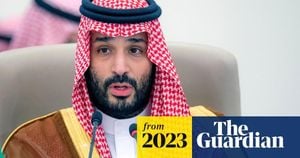Russia's approach to the protracted conflict with Ukraine has recently stirred international conversations, particularly around peace negotiations. The issue has been brought to the forefront amid calls for resolution from various global leaders, but the intricacies remain complicated.
Tensions have persisted since Russia’s invasion of Ukraine back in February 2022. The war has drawn significant international condemnation and led to substantial sanctions against Russia. A resultant humanitarian crisis has unfolded, leading to millions of Ukrainians fleeing their homes. Diplomatic discussions about peace have occasionally surfaced, but yielding substantial results has proven elusive.
Russian officials, including Foreign Minister Sergey Lavrov, have at times conveyed openness to negotiations, hinting at Moscow's willingness to discuss terms. Despite this apparent receptiveness, the specifics of what Russia seeks remain muddled. Key demands include Ukraine's recognition of Crimea as part of Russia and autonomy for separatist regions within Ukraine, which complicates any paths to discussion.
President Vladimir Putin's hardline stance appears unwavering. Despite the toll the war has taken on both Russian and Ukrainian populations, the Kremlin continues to maintain its agenda. This has led many to question the viability of genuine dialogue. Even attempts at negotiations during the early months of the conflict haven't yielded lasting ceasefires, often crumbling under the weight of divergent priorities.
Simply put, the power dynamics are stark, with Russia seemingly pushing to leverage military gains for diplomatic negotiation. Ukraine stands firm on its sovereignty and territorial integrity, rejecting any solutions perceived as capitulation.
Meanwhile, former President Donald Trump has entered the arena, proposing his interpretation of how peace might be achieved. Known for his unconventional approaches, Trump has suggested establishing goodwill with Russia, which he claims could lead to immediate cessation of hostilities. Specifically, he advocates for some sort of high-stakes negotiation, perhaps reminiscent of his dealings during his presidency.
While he has not offered precise details, Trump's words suggest he believes effective bargaining could lead to concessions favorable to Washington and Kyiv. This position has sparked debate: can Trump's approach provide fresh solutions, or does it overlook the core issues?
Several experts caution against overly simplistic views of negotiations. They stress the importance of acknowledging deep-rooted national sentiments on both sides, particularly among Ukrainians who have endured severe losses. Ensuring any agreement respects Ukraine's sovereignty is non-negotiable for its leadership, and it may echo the sentiments of many citizens.
On the flip side, Trump's proposals have drawn praise from some of his supporters, who see his approach as pragmatic. They argue traditional diplomatic channels have faltered and fresh perspectives might just bridge the successful negotiation gap. Others, though, are more hesitant, highlighting the risk of enabling Russian aggression with insufficient guarantees for Ukraine.
The geopolitical stakes are exceedingly high, with allies concerned about any potential fallout from softened US stance. Discussions about peace have massive consequences not only for the regions involved but globally. Even credible talks hold the potential for broader shifts if momentum builds.
The situation is fluid; as negotiations evolve or stall, clarity remains elusive. Contacts between diplomats, though sometimes productive, often reveal the chasms dividing Moscow and Kyiv.
Moving forward, analysts predict the discourse around peace will only intensify, especially with winter approaching and its implications for military operations. Many anticipate humanitarian conditions worsening, pressuring leaders to commit to discussions.
So, what lies next for Ukraine and Russia? Calls for peace may launch discussions, yet achieving tangible results will depend on political will—on both sides. For Ukraine, the stakes are personal; for Russia, they are strategic—what comprises acceptable terms for either nation remains the crux of the matter.
Peace may be on the horizon, but only time will tell how genuine those discussions might become.



